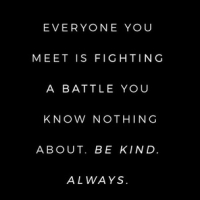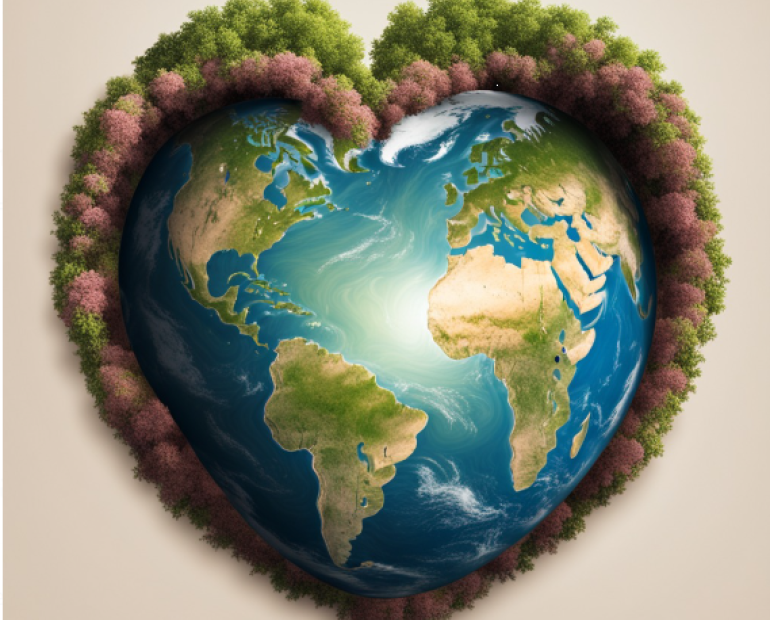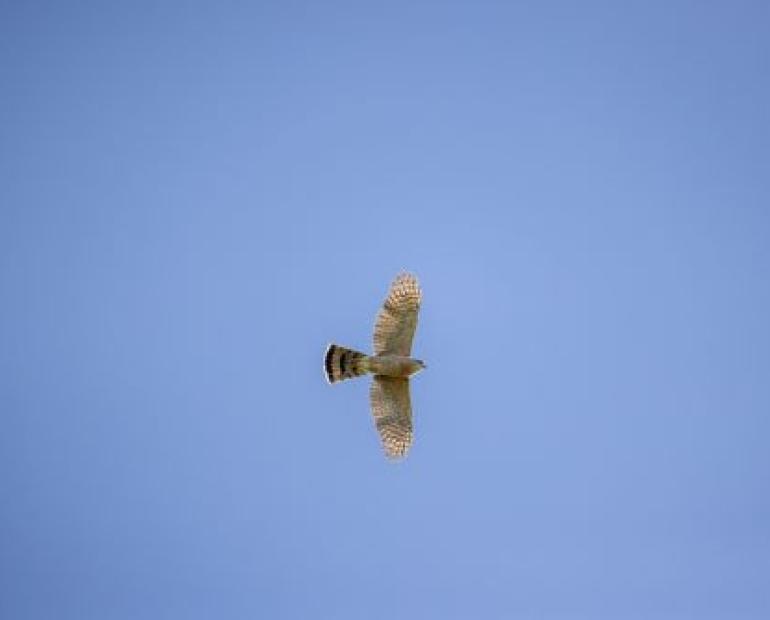
Take a deep breath. Close your eyes. Imagine yourself floating blissfully in the ocean, tranquilly floating in solitude and peace. Now, imagine that slowly the water beneath is draining away, draining away, and draining away…
For decades on, we, the inhabitants of our planet, have considered that the planet we live in is a place of limitless growth for the endless pursuit of interests beneficial to human life, though a planet with finite resources. Now, we identify a predictable end that’s, unfortunately, already in sight. We’re in the Anthropocene mass extinction, where slowly, but surely, much of the biodiversity on our planet is heading towards the end.
Take a deep breath. We aren’t there. Yet.
There exists the knitted web of life. This web of life interlinks every living species on the planet, ensuring survival and welfare to all. When there are a balance and assurance of survival of each of these species, we achieve the important ecological services we need (i.e. water purification, regulation of climatic conditions, nutrient recycling, et cetera). But when a species disappears, a single piece of yarn is cut, and although it doesn’t directly affect the larger web, it slowly diminishes the stability of the surrounding threads. In the web of life, this slowly takes away the finely balanced systems. Life has been perfectly woven to create this weave of the web of life, and now, we so perfectly take it for granted.
Take a deep breath. Thank the ocean for that breath. The ‘breath of fresh air' comes from the serenity of the oceans, but currently, our oceans are choking on the ones they take.
The common belief we have continued to serve regards the ocean to be inexhaustible, an everlasting source of food, the reliable garbage-dumping ground while being too cosmic for significant effects to be noticed. We see now, though, that the ‘sustainability thresholds’, we have so offhandedly trusted our actions on, have been breached.
Why should we protect our oceans?
- Only 5% of the entirety of oceans on Planet Earth have been discovered. That leaves us to unknown possibilities of the remaining 95%. When there is so much left unmapped, unobserved and unexplored, should we let mysteries remain mysteries?
- A protected ocean reduces climate change impacts. Not to forget, it is our planet’s most vital carbon sink, producing more than half of the oxygen we breath and absorbing more than a third of our gas emissions
- The blue economy employs a large number of people around the globe and helps developing countries with exports, imports, and living facilities for a sustainable economy
- Beauty, inspiration, recreation, coastal and marine tourism – what more can we be grateful for?
- The numbers of marine species (more than 50% of Marine Vertebrate populations have declined) have fallen dramatically with areas of essential habitats being degraded, destroyed or depleted. From climate change, overfishing to ocean acidification, what more can we cause?
- Reports conclude that if actions are not taken, following the projected levels of acidification and warming, coral reefs can be completely lost by 2050 with more than 250.000 tons of our plastic remains contaminate the ocean
Take a deep breath. Remember that we no longer do have the privilege of treading water on the ocean crisis. If Humanity is the problem, Humanity must be the solution. Our activities are larger than what the ocean can sustainably support, proving to us that the moment for action has arrived. Tomorrow might be too late.
5 easy ways to get involved:
- Make safe and sustainable seafood choices: The two most common sustainability labels -Marine Stewardship Council (MSC) and Aquaculture Stewardship Council (ASC)- are the ones you should look out for. They trace back to sustainably managed fisheries, protecting marine species
- Try your best to use reusable items: Single-use plastics have larger impacts than you may believe. They aren’t the root cause, but they are a simple solution. Better too, you can let companies know why you are opting out of the consumption of their products
- Make important travel decisions: When travelling, take the opportunity to visit marine protection areas. Visit areas around you to see how all of your actions are connected to the ocean. Online opportunities are present too! Visit virtual-reality websites that let you drive through the oceans to learn about all the interesting species; from whales and octopi to clownfish and seals. While travelling, also takes time to explore locally. It's a great opportunity for you to learn about new cultures and support the local businesses while simultaneously protecting the environment.
- Support organizations that curate projects for ocean protection: Surf through social media accounts to learn more about what protecting the ocean really is, and you may also find opportunities to help locally.
- Sign up, speak out, spread awareness, and share: Create and get involved in discussions about ocean wildlife and its protections with suggestions about what we can do. Being an advocate doesn’t ask for big changes but simply vocalizing the importance.
The ocean takes a deep breath. She has hope we will create change. Take the chance and learn more. The more you’ll learn, the more you’ll protect our Earth, sharing your knowledge to inspire others.
– Jacques-Yves Cousteau
While there is undoubtedly a large number of our actions to course-correct, we are hopeful, relieves and ready. Protecting our ocean is not merely another social justice cause but a change we all need to follow for survival. Together, we can certainly save our planet. While we may be dependent on Planet A in the vast blackness of space, we certainly have more than enough love to save it. Together, we can make a difference - the difference.
Take a deep breath.
To learn more...








